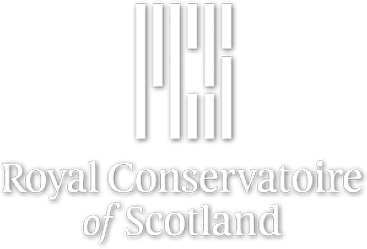Reading between the Lines: Paratext in National Song and Fiddle Tunebooks of the Georgian Era
Research output: Contributions to conferences › Abstract › peer-review
Contributors
About
Whilst paratext is much discussed in literature studies, it receives less attention in music. However, the paratextual material in late eighteenth and nineteenth century national song and tune collections - from title page to preface, subscribers and contents lists, and footnotes – reveals much about the compilers’ intentions.
It is significant that paratext is most evident in national song collections, and less so in more functional dance-tune collections. The lyrics alongside the musical settings give an added richness of context often referenced by compilers, and national identity features strongly in much of the paratext – highlighting the nationality of the songs and their compiler; revealing the way they viewed their national heritage; and (certainly in Celtic collections) alluding to bards, minstrels, and a vanishing heritage. Authenticity and origins are much discussed, and compilers contemporary with Sir Walter Scott draw upon similar tropes, such as the idea of buried treasure in The Antiquary, and the artifice of fakery recognised only by the few.
Another theme is, conversely, the long-running idea that England was a land with no music – an argument promoted both by Scots and Europeans, whilst English compilers vehemently defended themselves
This level of paratext is less common in instrumental music. A classical trio sonata stands unadorned with little or no commentary, and even in national dance music, it’s unusual to find much prefatory preamble. However, paratext is still to be found in the dance tunebooks in lists, short footnotes, ascriptions and so on. Collections of reels and strathspeys by the famous Gow family reveal the same preoccupation with authenticity and maintaining the accuracy of the repertoire.
Musicologists and cultural historians should ignore this paratext at their peril, for much is to be learned by close perusal of these collections.
It is significant that paratext is most evident in national song collections, and less so in more functional dance-tune collections. The lyrics alongside the musical settings give an added richness of context often referenced by compilers, and national identity features strongly in much of the paratext – highlighting the nationality of the songs and their compiler; revealing the way they viewed their national heritage; and (certainly in Celtic collections) alluding to bards, minstrels, and a vanishing heritage. Authenticity and origins are much discussed, and compilers contemporary with Sir Walter Scott draw upon similar tropes, such as the idea of buried treasure in The Antiquary, and the artifice of fakery recognised only by the few.
Another theme is, conversely, the long-running idea that England was a land with no music – an argument promoted both by Scots and Europeans, whilst English compilers vehemently defended themselves
This level of paratext is less common in instrumental music. A classical trio sonata stands unadorned with little or no commentary, and even in national dance music, it’s unusual to find much prefatory preamble. However, paratext is still to be found in the dance tunebooks in lists, short footnotes, ascriptions and so on. Collections of reels and strathspeys by the famous Gow family reveal the same preoccupation with authenticity and maintaining the accuracy of the repertoire.
Musicologists and cultural historians should ignore this paratext at their peril, for much is to be learned by close perusal of these collections.
Details
| Original language | English |
|---|---|
| Publication status | Published or Performed - 16 Jul 2019 |
| Event | Enlightenment Identities: 15th International Congress on the Enlightenment (International Society of Eighteenth Century Studies) - University of Edinburgh, Edinburgh, United Kingdom Duration: 14 Jul 2019 → 19 Jul 2019 |
Conference
| Conference | Enlightenment Identities |
|---|---|
| Abbreviated title | ISECS 2019 |
| Country/Territory | United Kingdom |
| City | Edinburgh |
| Period | 14/07/19 → 19/07/19 |
Author keywords
Keywords
- Music, History, Enlightenment, Paratext
